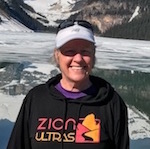By Michele Straube and Danya Rumore for EDRBlog.org
On June 15, the EDR Program co-hosted “Fostering Productive Dialogue in Divided Times,” the third in the Dialogue on Collaboration series. At the end of the event, we challenged our nearly 100 participants to write down one thing they would do to engage in dialogue with someone different (or difficult)—whether in their personal, professional, and/or community lives. We asked those who were willing to share their ideas or actions with us so that we could share them with all of you. Here are some of their stories (anonymized as requested, and in some cases, shortened). Our aim in sharing these stories with all of our blog readers is to encourage each of you to take action, no matter how big or small, to foster productive dialogue and civil problem-solving in your lives. For as Lao Tzu aptly said, “Great acts are made up of small deeds”…
The June 15 Dialogue focused on what it means to engage in “dialogue”—particularly with someone you don’t agree or see eye to eye with. As we highlighted during the event, dialogue is not just “talking with” (or, for that matter, talking at) other people. Instead, dialogue is effective communication that focuses on truly trying to understand and learn from each other. Dialogue starts with the courage to make contact with the “other” person, and being open to listening to their perspective.
This Dialogue about dialogue was particularly timely. Engaging in this kind of conversation is key to helping our nation heal its rifts, so we can work together to address our shared concerns. (For insights about how to foster productive dialogue and related tools and resources, see our past blog on the event, which includes links to panel presentation slides and videos).
Get notified when new articles are posted to the EDR blog – sign up for our email list »
Some of the participants’ stories demonstrated that engaging in dialogue can create major shifts in relationships. Here is one example:
When asked to make a commitment [to engaging in dialogue with a “difficult” someone], the first thing that came to mind was our neighbor across the street, who has an obnoxious little yapper of a dog. Every time the dog is outside, he goes to the fence across from our open front door and barks incessantly in a high-pitched, piercing, totally annoying way until he’s finally taken inside. Since we moved to this neighborhood three years ago, all my communication with the owner has consisted of requests to shut the dog up, take him inside, keep him from barking constantly. We have never talked about anything else.
Based only on this man’s unpleasant dog and his inability to control the barking, I had characterized this guy as irresponsible, unfriendly, etc. I also projected that he was [politically and socially different from me]. He became a symbol of everything I wasn’t.
So I decided we should invite him for dinner.
To my surprise, he accepted immediately. And he said he’d bring a bottle of wine. For the first time, I realized I had also assumed he didn’t drink and was probably LDS – an assumption I wasn’t even aware of until that moment. An assumption that now, in retrospect, gives me great pause.
Turns out we had a rather delightful evening. We had far more in common than I had ever imagined. Though our life experiences were vastly different, we shared similar world views. And I learned that the dog was left behind when his wife abandoned him and his then-12-year-old daughter over a decade ago. He turns out to be pretty frustrated with the dog, but also feels the need to keep it.
So, things turned out differently that I expected, which is exactly the point. Lesson learned. I will try this again soon with someone else.
Here are four examples of people taking steps, no matter how big or little, to change the rhetoric—whether in their personal lives or in the public sphere:
(1) My personal commitment? Trying to do a better job of understanding where the other party is coming from emotionally, before framing a response.
Someone posted an article on Facebook that started out with a couple of sentences blaming the Brian Head fire on the environmentalists, but then focused on the fire fighting efforts. I replied that the article earned a D- because it included the groundless allegations without support.
In response, I got a long heart-felt rant by someone directly injured by the fire. Rather than pointing out how they had missed the point, I thanked them for sharing and said I was sorry for their loss. Received a very kind and much tempered response.
(2) I hope to teach colleagues in a political interest group to which I belong how to dialogue with members of Utah’s federal delegation. Dialogue will [also] be useful [for current concerns being considered by the legislature and the City.
(3) I tried to make a 1-on-1 connection with a Facebook “friend” who I noticed had extremely different views from me. When we never were able to set a date, I started a Meetup group called Crossing Divides. Its stated purpose is for people who are concerned about the growing divide along political lines, and who are interested in actually working to develop understanding for people with differing political views. We have about 17 members . . . but after setting up about 8 different meetings, only one time did anyone show up. One person, which was great; he and I were able to talk for over an hour, and he was coming from a very different place, but was also very open minded.
(4) In my neighborhood, I’m working to build connections irrespective of political differences. The main mechanism I use for this is sharing surplus eggs and, in about a month, also peaches. Most of my neighbors are more similar than different to me politically, but I have connected with one neighbor from across the divide. It seems much easier to make connections if you start somewhere outside of politics.
Others were a reminder that certain institutions may not adequately encourage and support productive dialogue and collaborative problem solving (although we are hopeful that this is changing over time):
Since June 15, I’ve reached out to opposing counsel in two of my cases that should absolutely be mediated and settled, rather than litigated. And I made mention of the principle of collaboration to seek long-term outcomes that mutually benefit our respective clients.
The problem is almost certainly . . . opposing counsel. I so wish I could pick my opposing counsel. If that were the case, so much more great work would be accomplished for clients, and the legal system as a whole.
All of the stories we received reinforced our belief that bridging divides and working together to address shared issues is both possible, and greatly enhanced, by connecting as humans, listening to, and learning from, one another.
At the “Fostering Productive Dialogue in Divided Times” event, we stated that the EDR Program is committed to advancing productive dialogue through partnering with other entities at the University of Utah to promote civility and dialogue throughout Utah. We are now following up on our commitment by working with the Kem Gardner Policy Institute and others at the university to develop initiatives aimed at this goal.
 Bios:
Bios:
Michele Straube is the Founding Director of the Environmental Dispute Resolution (EDR) Program at the Wallace Stegner Center for Land, Resources and the Environment, S.J. Quinney College of Law, University of Utah.
 Danya Rumore is the current Director of the EDR Program, and a Research Assistant Professor at the S.J. Quinney College of Law and the City + Metropolitan Planning Department.
Danya Rumore is the current Director of the EDR Program, and a Research Assistant Professor at the S.J. Quinney College of Law and the City + Metropolitan Planning Department.
